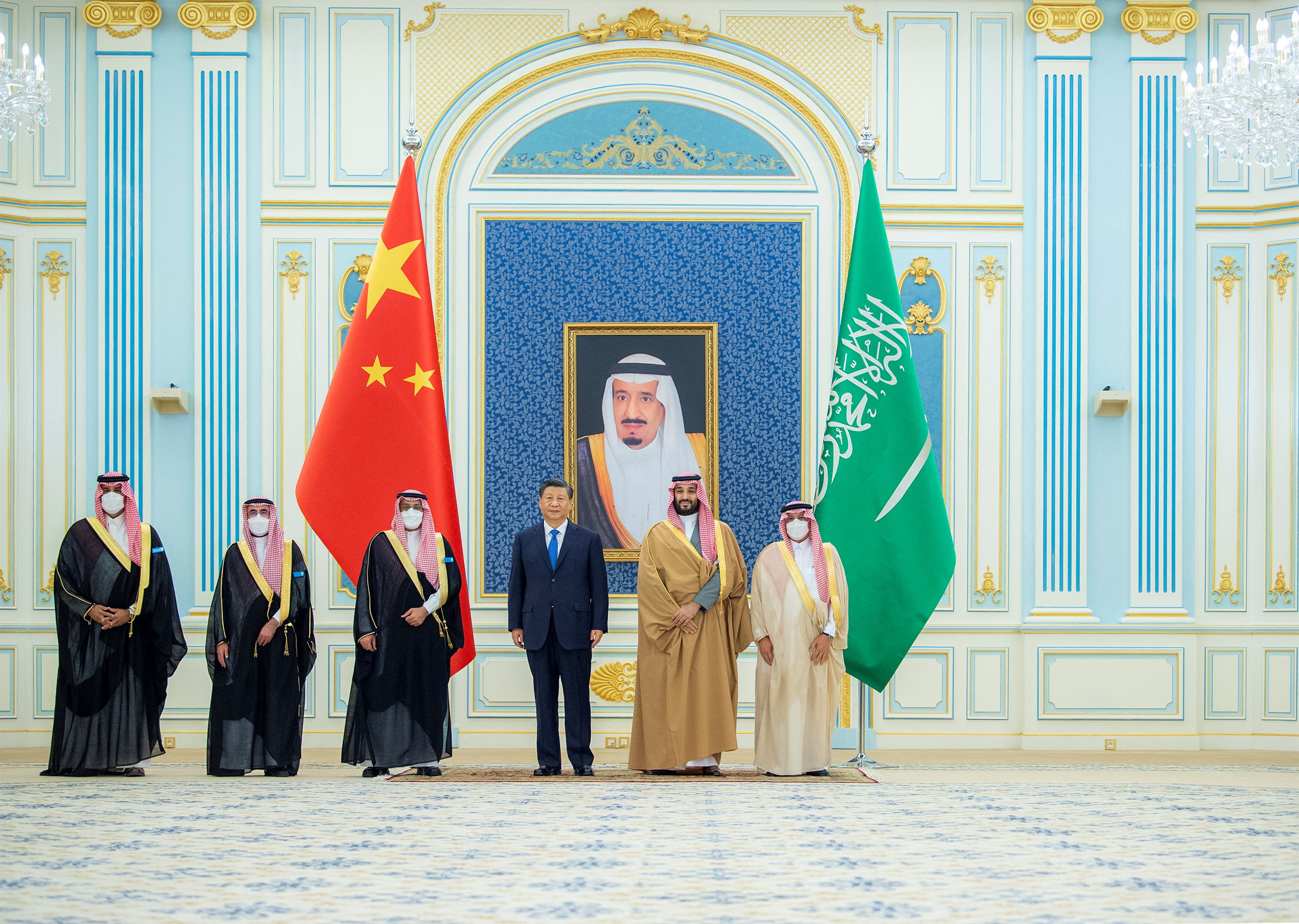In an interview with the website of the Strategic Council on Foreign Relations, Hormoz Jafari, referred to the two statements issued during the visit of Chinese President Xi Jinping to Saudi Arabia within the framework of the Persian Gulf Cooperation Council and after the bilateral meetings in Riyadh and clarified: Those statements and the five axes raised in the speech of president of China in the Persian Gulf Cooperation Council, shows that the plans of both sides include a wide range of issues, which indicate the strategic evolution and deepening in interactions between the two sides.
Saying that we are witnessing a very important and new development in the positions raised in those statements regarding Iran, he added: China for the first time and clearly signed a document that expresses the approach and strategy of foreign policy with a Saudi-Emirati focus towards regional issues. Those statements, especially the statement of the Persian Gulf Cooperation Council, are as if they were signed by Biden and not by Xi Jinping!
The analyst of international affairs stated that in the Yemen issue, China was completely on the side of Saudi Arabia and Xi Jinping met Al Alimi, Chairman of the Presidential Leadership Council), and supported that Council, adding: Regarding Iran’s nuclear case, missile and drone activities, regional issues and comprehensive talks, positions of Arab countries were raised by China, which are contrary to expectations and completely rejected.
Emphasizing that China, contrary to its international practice, raised the issue of negotiating over Iran’s territorial integrity with regard to the UAE plan, and this clearly showed China’s support for the approach of the Persian Gulf Cooperation Council led by Saudi Arabia and the UAE, Jafari continued: China’s unacceptable support for the UAE initiative is at the time when the country itself is involved in the Taiwan issue.
Recalling that Saudi Arabia was the last country to recognize China within the framework of the United Nations and was able to sign a strategic partnership document with China with the purchase of ballistic missiles, he said: They now have a foreign trade volume of over 87 billion dollars. From 2005 to 2021, China has invested more than 44 billion dollars in Saudi Arabia and in the same period they have invested 37 billion dollars in the UAE. At the same time, they have invested about 130 billion dollars in the countries of the Persian Gulf Cooperation Council and Iraq.
Saying that China sees a 2 trillion dollars foreign exchange reserve fund in the Persian Gulf Cooperation Council, which can be a great help to China’s ambitious approach to expanding its international interests, Jafari added: China also takes a serious look at its energy security in this direction, and in the situation that this volume of economic benefits for China is in the Persian Gulf Cooperation Council naturally leads to deepening relations with those countries. In addition, Saudi Arabia has turned to Beijing due to the US foreign policy approach, developments in the global energy market, structure of oil and gas production and consumption, and the importance of receiving technology from China.
The international affairs expert noted: Of course, such developments do not mean that China does not want to work with Iran; in any case, today’s world is not the world of cold war or the black and white world.
Emphasizing that those statements are the result of some developments and of course will bring about other developments as well, Jafari continued: Serious events have occurred in various economic, political and military dimensions that led to the signing of that statement by China, which is unacceptable in our point of view. In addition, Saudi Arabia and the countries of the Persian Gulf have shown in the past few years that they are no longer following the United States, and Biden’s visit to the Saudi region proved this approach for the United States, and this is an opportunity that China seeks to exploit.
Emphasizing that Tehran should not act hastily in this regard, the expert on international affairs explained: Iran should consider balance in the country’s foreign policy.
Jafari added: In the past decade, there have been developments in the interactions between Arab countries and the United States, which have ended up in favor of China, and that country has been able to form a wide influence in various political, economic and cultural dimensions in this region. We see that Chinese language is being taught in many Persian Gulf universities. Saudi Arabia is China’s gateway to the Arab world, and from China’s point of view, the benefits that are generated from interaction with the Persian Gulf countries cannot be compared to relations with Iran.
Noting that China’s Silk Road Fund is the main member of the two consortia that bought 49 percent of Aramco pipelines and that China has wide benefits in its relations with Saudi Arabia, he said: The US, with all the sanctions and pressures it announced, could not even warn Saudi Arabia and the Persian Gulf Cooperation Council from interacting with Huawei.
The analyst of international affairs emphasized: If China does not seek to compensate for the positions adopted during Xi Jinping’s visit to Riyadh, Tehran should conduct a deep review of its foreign policy, especially in relation to China, based on the upcoming developments.










0 Comments